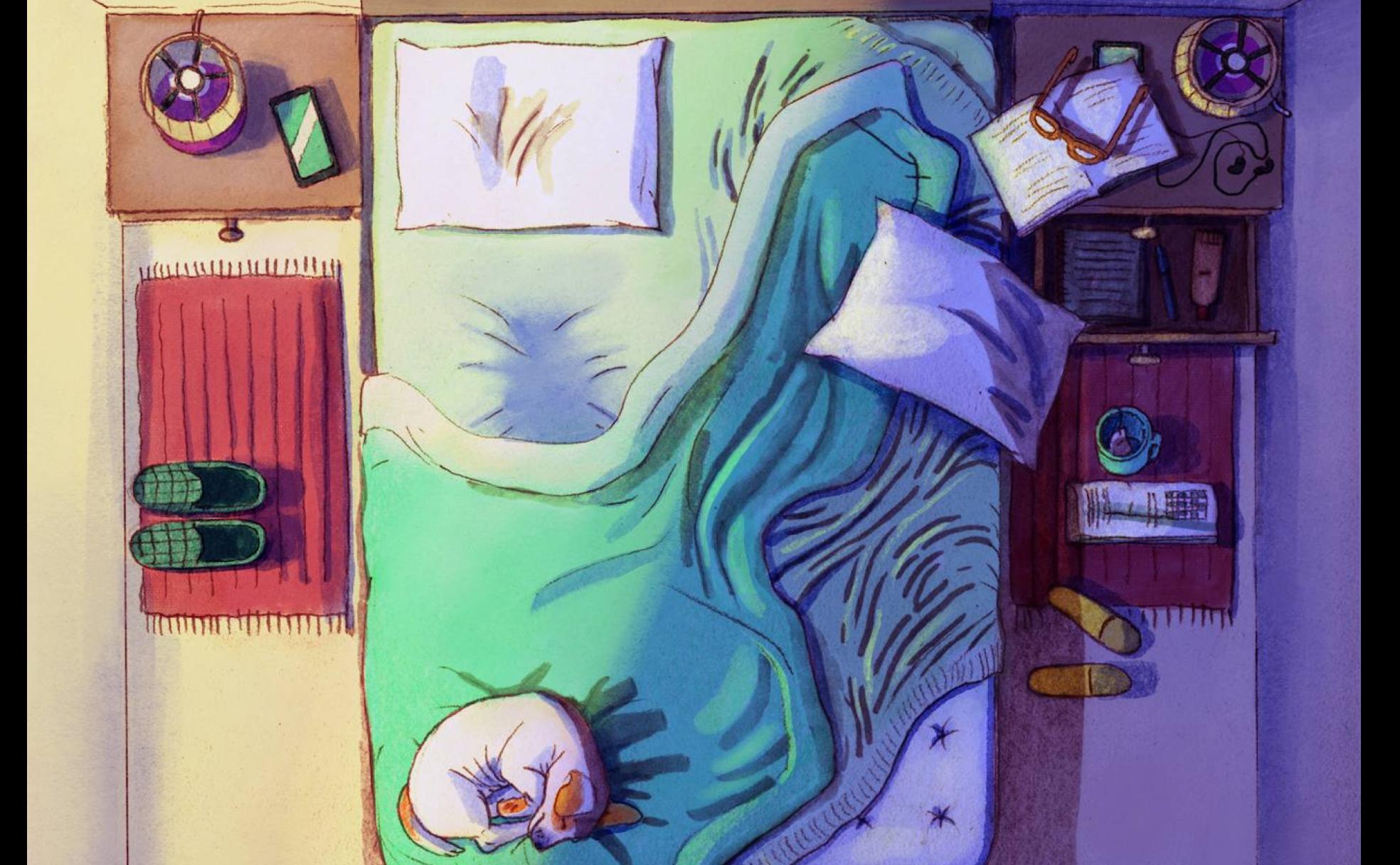Men sleep less than women but they sleep better
Women tend to suffer from insomnia, sleep apnea and restless leg syndrome
CARMEN BARREIRO
Friday, 30 December 2022, 11:28
According to recent studies, on average women sleep 11 minutes a night more than men, but the quality of their sleep is lower and more disturbed.
"The main difference is hormonal. We know that women wake up more than men during the night and they feel more fatigued and sleepy when they get up in the morning," says Ariadna Farré, a nurse in the Sleep Unit at the Santa Creu i Sant Pau hospital in Barcelona.
Hormonal changes
She says these differences are most noticeable at certain times of a woman's life, such as during pre-menstrual syndrome, pregnancy - between 20 and 60 per cent of pregnant women suffer from insomnia - and the menopause, which also causes discomfort at night such as hot flushes, sweating and the need to go to the bathroom more often.
During an address to the recent Congress of the Spanish Sleep Society (SES), Ariadna explained that there are three disorders which particularly affect women: insomnia (70 per cent more frequent than in men), sleep apnea (nine out of ten women with this condition are never diagnosed) and, to a lesser extent, restless leg syndrome,
"which often occurs during pregnancy and can get worse during the menopause," she said.
Dr María Fernanda Troncoso, secretary of the board of the SES, explains why these differences occur between men and women when it comes to sleeping, and says it is a subject which has rarely been studied.
"The way sleep develops is parallel to the way we develop and how our brain matures from birth to adulthood.
In general we can say that its characteristics are determined as much by genetic factors as by environmental ones, and they are modulated at the same time by social and cultural differences.
Now, recent studies suggest that in girls the cortical brain functions (comprehension, awareness and communication) mature earlier and this can influence sleep and cause the difference between the sexes," she says.
Insomnia symptoms
The experts say that girls sleep more and have less broken sleep than boys during childhood, but in adolescence everything changes.
"In girls there is a reduction in slow-wave sleep, and a more marked delay in the circadian rhythms (they sleep later and wake later), and this results in a higher incidence of insomnia symptoms in teenage girls than boys," says Dr Tronocoso, who is also a pulmonologist with the Multidisciplinary Sleep Unit at the Jiménez Díaz Foundation in Madrid.
In the case of women, sexual hormones play a key role in sleep disorders because they have a direct influence on sleep regulation and waking.
Melatonin
"Nocturnal secretion of melatonin normally decreases with age, but it also does so specifically during the menopause.
In fact, more than half of post-menopausal women suffer from some type of sleep disorder. And that lack of sleep is associated with inflammation and cardiovascular and metabolic illnesses, as well as mood changes," Dr Troncoso says.
Sleep study
These experts agree that understanding how sleep evolves over a woman's lifetime can lead to effective therapies which improve their health and quality of life.
"Women often go to the doctor and say they have insomnia but they come out loaded down with sedatives instead of a sleep study being carried out," says Farré.



